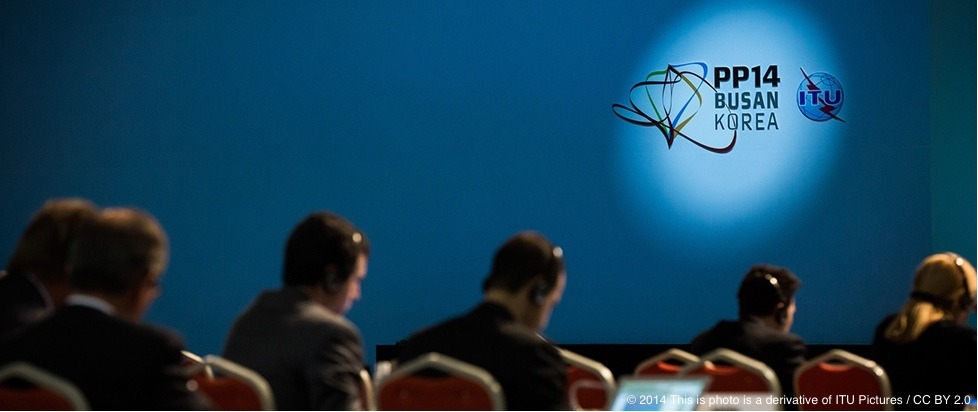After three long weeks, the ITU Plenipotentiary Conference is finally coming to a close. The remaining hours will be spent on official statements, submitting reservations and the legal formalities of signing a treaty. So now is the time to step back and reflect on the results.
You may recall that the Internet Society submitted an information paper to the ITU Plenipotentiary Conference that outlined our perspectives on the Conference and the work of the ITU. In our view, the ITU has important work to do within its existing mandate and there was no need to expand the mandate of the ITU in order for the Union to carry out work in the areas of development, spectrum, and standards. Specifically, we said:
“Based on its current remit, the ITU has an important role in the Internet ecosystem; promoting core infrastructure development and cross-border connectivity, allocating spectrum to enable the deployment of new technologies and services, and providing technical assistance and capacity building in developing countries. We believe that the current ITU mandate is sufficient to carry out the critical tasks outlined above both today and into the future.“
So we were pleased that a consensus emerged early on not to change the Constitution and Convention (the treaty) in order to expand the legal scope of the ITU’s mandate. And, just yesterday, Member States agreed not to agree on a definition of ICT. This may seem like a detail but a formal definition at the Plenipotentiary Conference could have substantially changed the purpose, remit and meaning of a range of ITU Resolutions.
Having generally agreed not to change the treaty, most of the Internet-related debate focused on the role of the ITU and/or Member States in various topics – IP addressing, cybersecurity, Internationalized Domain Names, IP-based networks, privacy, data protection, WSIS, human rights, routing, Internet exchange points (IXPs), and Internet policy.
The Conference agreed that issues of privacy, surveillance and human rights are important but largely out of scope for the ITU’s work. In the areas of IP addressing, IDNs, IXPs, IP-based networks and Internet policy, the ITU’s role is appropriately scoped to capacity building, awareness raising and, in some cases, providing assistance to Members. For the WSIS, the meeting acknowledged the multistakeholder experience in WSIS+10 High Level Event and expectations for future ITU’s role are directed to next UNGA WSIS Review in 2015. On issues of transparency and inclusive engagement, some small steps were made regarding consultation and access to documents and meetings but there is still much more work to be done.
We were also very pleased to be able to find opportunities for collaboration with the ITU in the fight against Ebola and in our initiatives to address spam. We are hopeful that this lays the groundwork for greater cooperation in areas where we have shared objectives.
These were not easy discussions, but for those of us who attended the 2012 WCIT, the dialogue here in Busan was much more positive and focused on finding consensus. There are many reasons for this but I think it’s fair to say that widespread efforts by many parties for dialogue and outreach since 2012 have paid off.
And now it is time to look ahead. Each of these big international policy events is an opportunity to reflect on the key Internet policy issues that governments are focusing on and other practical work we can undertake with the Internet community and stakeholders. For example, we know that the surveillance revelations have intensified policy concerns about online privacy and security. It is also clear that affordability and access are still major challenges for many developing countries. And, many countries remain uncomfortable with the notion of multistakeholder Internet governance.
In sum, as we pack our bags and head back home, we leave the Plenipotentiary Conference on a positive note but with plenty of important work left to do.

